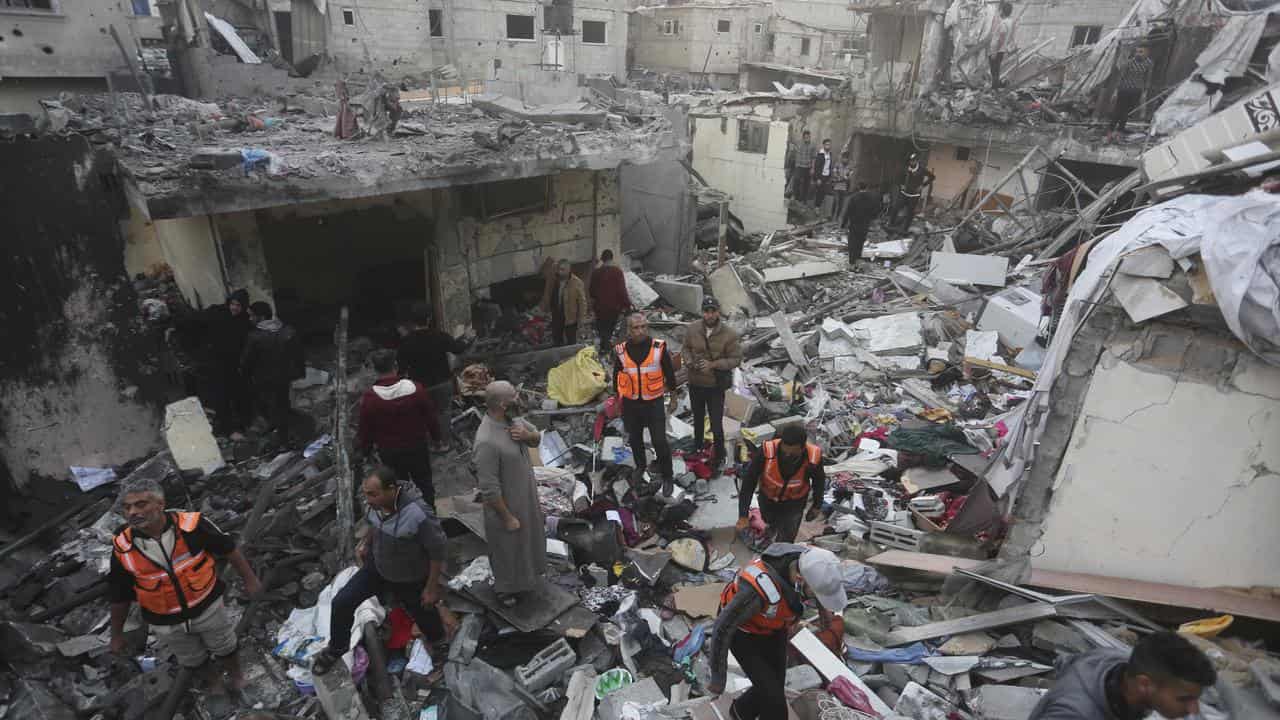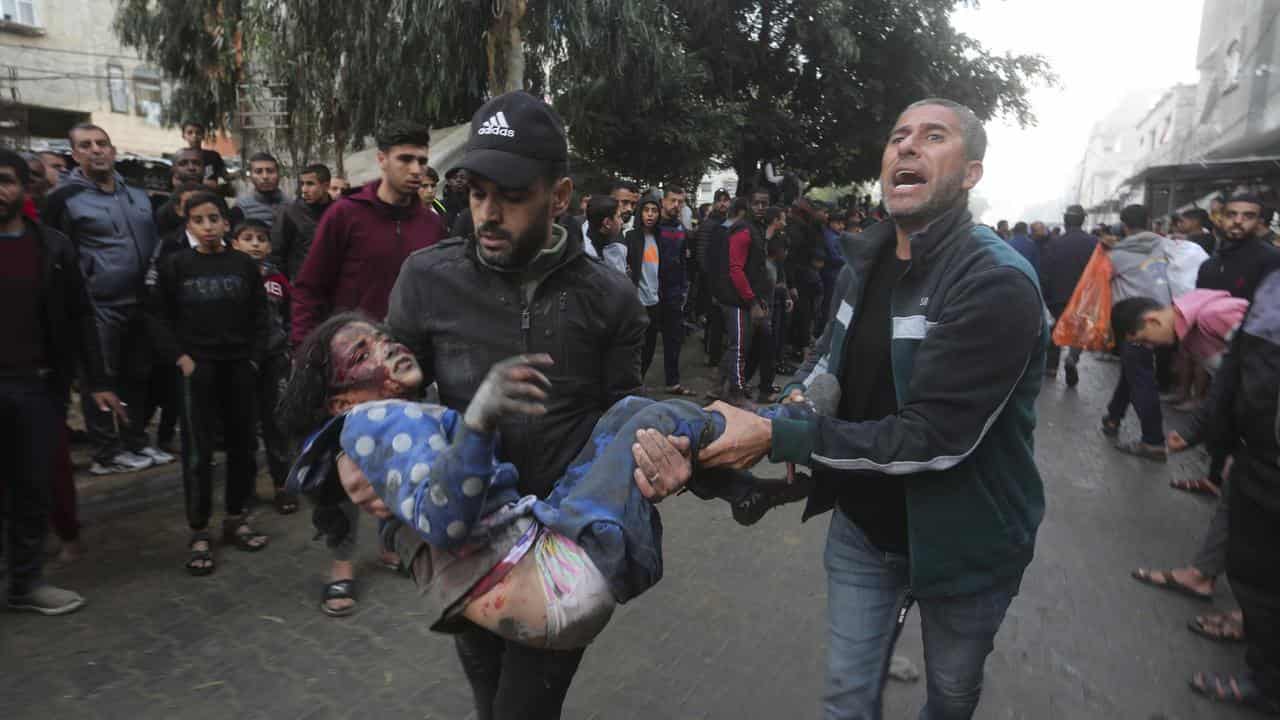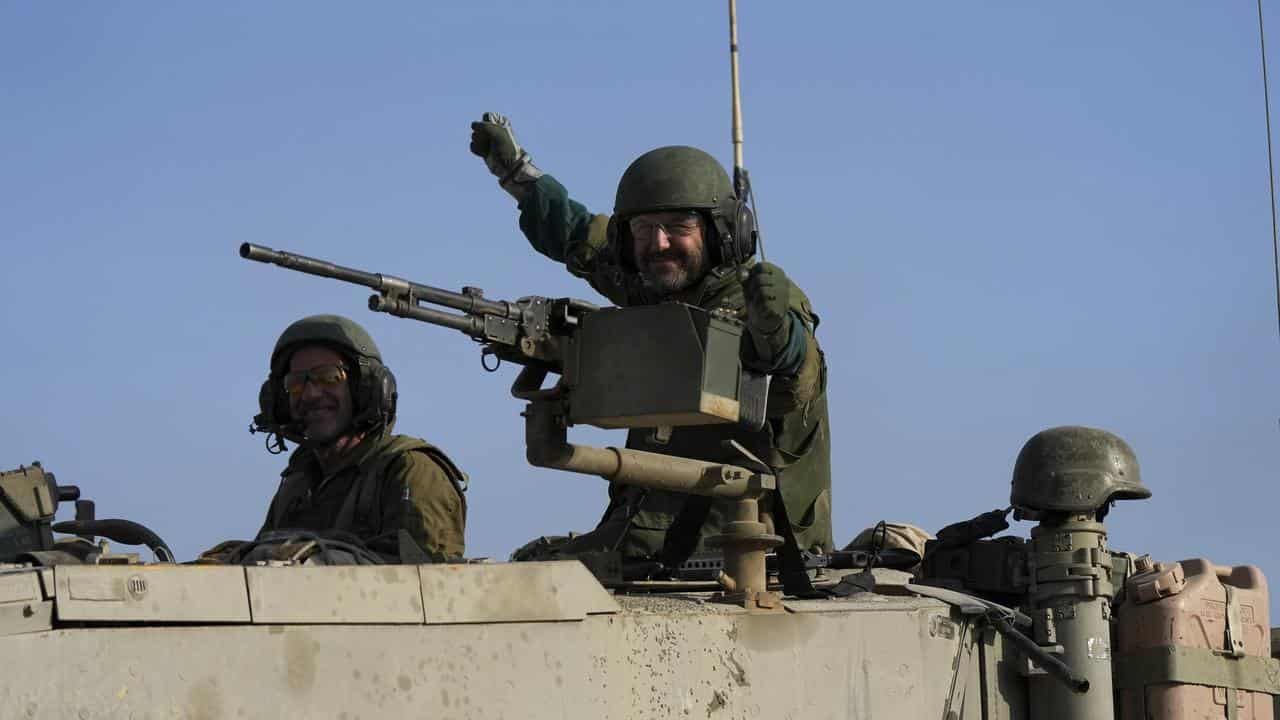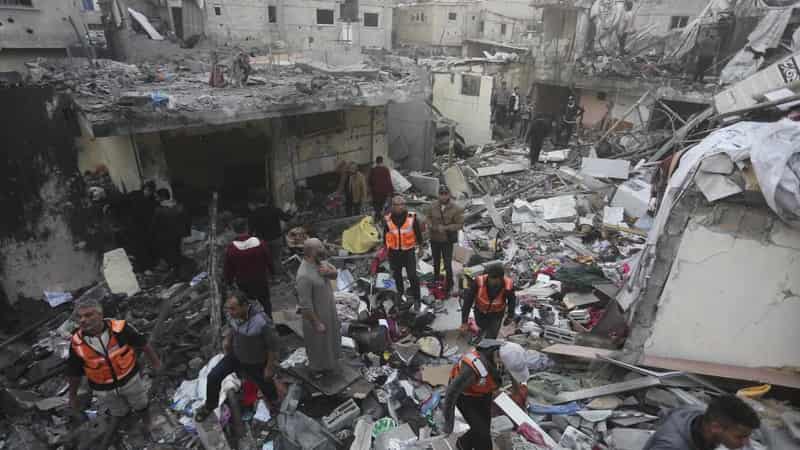
Israel is facing growing diplomatic isolation in its war against Hamas as the United Nations demanded an immediate humanitarian ceasefire in Gaza and US President Joe Biden told the longtime ally its "indiscriminate" bombing of civilians was hurting international support.
After dire warnings from UN officials about a deepening humanitarian crisis in Gaza, the 193-member General Assembly on Tuesday passed a resolution calling for a ceasefire with three-quarters of member states voting in favour.
"The price of defeating Hamas cannot be the continuous suffering of all Palestinian civilians," the leaders of Canada, Australia and New Zealand said separately in a joint statement calling for a ceasefire.
The Palestinian Authority welcomed the resolution and urged countries to pressure Israel to comply. A Hamas official in exile, Izzat El-Reshiq, in a statement on Telegram echoed that reaction, saying Israel should "stop its aggression, genocide, and ethnic cleansing against our people".
The US and Israel, which argue a ceasefire only benefits Hamas, voted against the measure along with eight other countries.
Before the UN vote, Israel's UN Ambassador Gilad Erdan said: "A ceasefire means one thing and one thing only - ensuring the survival of Hamas, ensuring the survival of genocidal terrorists committed to the annihilation of Israel and Jews."
Before the resolution, Biden said Israel now has support from "most of the world" including the US and European Union for its fight against the Palestinian militant group Hamas.
"But they're starting to lose that support by indiscriminate bombing that takes place," he told a campaign donor event in Washington.
In the most public sign of division between the leaders so far, Biden also said that Israeli Prime Minister Benjamin Netanyahu needed to change his hardline government and that ultimately Israel "can't say no" to an independent Palestinian state - something that Israeli hardliners oppose.
Israel's assault on Gaza to root out Hamas has killed at least 18,205 Palestinians including many children and wounded nearly 50,000 since October 7, according to the Gaza health ministry.
The conflict has also led to starvation, displaced 85 per cent of the population from their homes and caused diseases to spread, according to the UN and Gaza health ministry.
Israel launched its onslaught after a cross-border raid by Hamas fighters who killed 1200 people and took 240 hostage in southern Israel on October 7. Israel on Tuesday declared 19 of 134 people still in captivity in Gaza dead in absentia after the bodies of two hostages were recovered.
The UN resolution is not binding but carries political weight, reflecting a global view on the war. The United States vetoed a similar call in the 15-member Security Council last week but does not have a veto in the General Assembly.
Tuesday's resolution got 153 votes in favour, 10 against and 23 abstentions. In an indication of weakening support for Israel, the resolution passed by a wider margin than a similar UN measure in October, which got 121 votes in favour, 14 against and 44 abstentions.

In the south Gaza town of Rafah, which borders Egypt and where the Israeli army this month told civilians they would be safe, Gazans said the shelling was some of the heaviest in days. Health officials said 22 people including children were killed there.
Israel's military said that over the past day it hit several posts that were used to fire rockets at its territory, raided a Hamas compound where it found some 250 rockets among other weapons and struck a weapons production factory.

Israel on Wednesday said eight more of its soldiers had been killed in Gaza fighting, taking the total to 114 since ground operations began on October 20.
Biden said he had heard unconfirmed reports there were no hostages in the tunnels. Some hostages freed during a ceasefire reported they had been held in tunnels. The Israeli military said it was looking into the reports.









